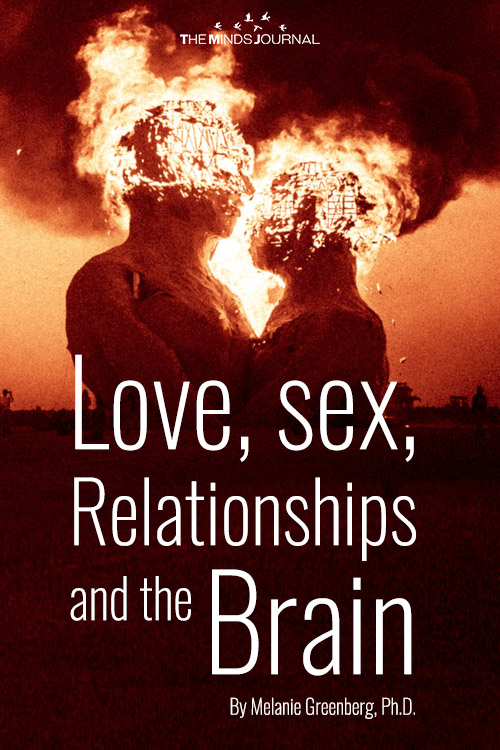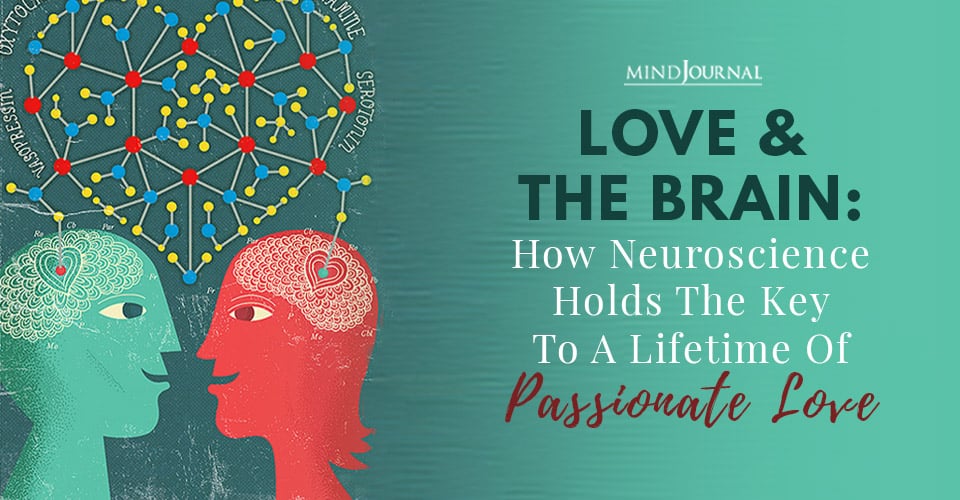Find out the correlation between love, sex, relationship, and the human brain.
Does neuroscience hold the key to a lifetime of passionate love?
Let me not to the marriage of true minds Admit impediments. Love is not love. Which alters when it alteration finds Or bends with the remover to remove:O no! it is an ever-fixed mark. That looks on tempests and is never shaken; It is the star to every wandering bark, Whose worth’s unknown, although his height is taken. – Shakespeare, Sonnet 116.
Related: 6 Signs Your Partner Wants You For sex, Not Love
The qualities of true, romantic love have inspired playwrights, poets, and philosophers throughout the ages. Love is ideal; an inspiration — a feeling of passion and commitment that adds richness and joy to life.
A loving relationship provides a secure base from which to grow, expand and explore the world. Yet, until recently, we did not know for sure whether romantic love could last, or whether it inevitably transformed into compassionate love — enduring friendship characterized more by shared interests, commitments, and values than passion and excitement.
Or, even more disappointing, perhaps love inevitably fades and couples stay together in miserable or passionless relationships because of social convention, convenience, and duty.
Are Kids Relationship Ruiners?
Research suggests that all of these patterns are possible. First, the bad news! Researchers at Bar-Ilan University in Israel studied couples with children from pregnancy to 14.5 years after the child’s birth in two overlapping large-scale studies.
Overall, marital satisfaction decreased following the birth of the first child and continued to decline steadily, reaching an all-time low when the kids became teenagers.
The more kids, the greater the decline in marital satisfaction. Dissatisfied couples did not inevitably divorce, however. Marital dissatisfaction was not significantly related to breaking up, except if husbands had especially low satisfaction during the first child’s transition to school.
Those couples with stronger relationships, to begin with, had less decrease in satisfaction. The take home message is that marriage with kids is not just a bed of roses.
While children can provide much pleasure and meaning, they can also take time away from couple bonding activities, place stress and emotional demands on parents, and lead to fights over parenting strategies and division of labor. Financial stress and a routine of errands and driving kids around can further erode relationship glamour and romance.
Parents may be too tired for sex or even, conversation. Thus, romantic love between parents, if left untended will diminish in intensity during child-rearing years, most of the time.
Shared commitment to parenthood, pride in kid’s achievements, and involvement in kids’ social, academic, and sporting activities can provide alternative sources of fulfillment and friendship during these years. When kids leave the home and couples have more time together, they can often rebuild closeness and intimacy.

Can Romantic Love Last?
At the other end of the spectrum, brain imaging studies provide proof that romantic love can last, at least for around 5-12 percent of couples, according to researcher Art Aron, the romantic love guru from Stony Brook University, in New York, whose studies look inside the brains of couples in love. In a touching side-note, Aron often collaborates in these studies with his wife of 37 years, Elaine Aron, also a researcher at Stony Brook.
The Brain in Love
A groundbreaking study by Aron and his colleagues, published last year in the journal Social Cognitive and Affective Neuroscience sought to uncover the mysteries of how our brains process love.
The researchers recruited couples that had been together more than 20 years as well as those recently fallen in love. After completing questionnaires assessing closeness, romantic love intensity, and sexual frequency, the couples entered brain scanning machines.
Using functional magnetic resonance imaging to look inside the brain in real-time, the researchers compared the reactions of new, and long-time lovers, while they viewed pictures showing faces of their loved ones, and faces of close friends, and long-time acquaintances.
Related: Sex on the Brain: The Evolutionary Link between Intelligence And sex Drive
This methodology was used to make sure that the brain effects seen were due to romantic love, rather than affection or familiarity.
Results showed that indeed, love can last, and has a unique physiological profile in the brain. The brain scans of both long-term and recent couples showed activity in the ventral tegmental area (VTA), an area with high dopamine concentration, which is associated with reward and motivation.
Partner pictures produced distinct and more powerful responses than friend and acquaintance pictures. Romantic partners, therefore, appear to have unique and lasting reward value! Also, those long-term couples that reported the highest levels of romantic love and closeness on questionnaires had levels of brain VTA activity similar to those of newly in love partners.
Sex and the Brain

This study also revealed some interesting findings related to attachment and sexuality. Compared to new partners, long-term partners showed activity in brain areas associated with an attachment that demonstrated greater calmness and less tension.
Thus, long-term partners may become more securely attached and less likely to fear abandonment. The higher sexual frequency was associated with greater activity in the posterior hippocampus — an area associated with hunger, cravings, and obsession.
Related: Why sex Is So Important In A Relationship?
Thus, romantic love appears to be different than sexual attraction, although this may be a component of it. Taken together these findings suggest it is important to build a strong romantic bond early on, so that love can withstand the challenges of aging and family development.
Since we know that our brains can change in adulthood and possess neuroplasticity, it is also likely that we can rebuild and renew love in relationships that have deteriorated.
How Do We Keep the Spark of Love Alive?
Research findings suggest we can rebuild or enhance love in relationships by:
Generosity – Being helpful and considerate in small and large ways, doing our fair share of chores, stepping in to allow our partner to take a break.
Positivity – Focusing on and communicating about our partner’s positive qualities. Showing appreciation and affection on a regular basis.
Attachment – Allowing our partners to turn to us and depend on us when they are vulnerable; providing a secure emotional base and reassurance of worth.
Expansion – Helping our partners to expand their worlds by engaging in novel and challenging activities together and bringing in our own passion for life.
My next post will provide concrete tools for using these research-based strategies to strengthen your own romantic relationships.
Related video:
Written By: Melanie Greenberg, Ph.D.
Originally appeared on: Psychologytoday.com
Printed with the author’s permission











Leave a Reply